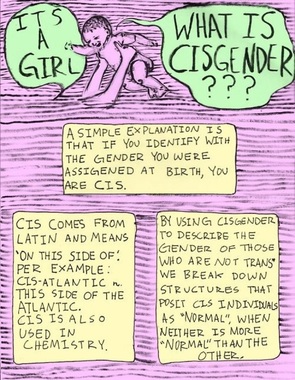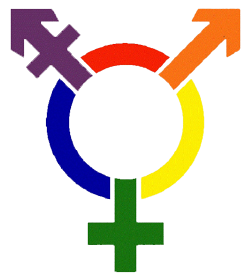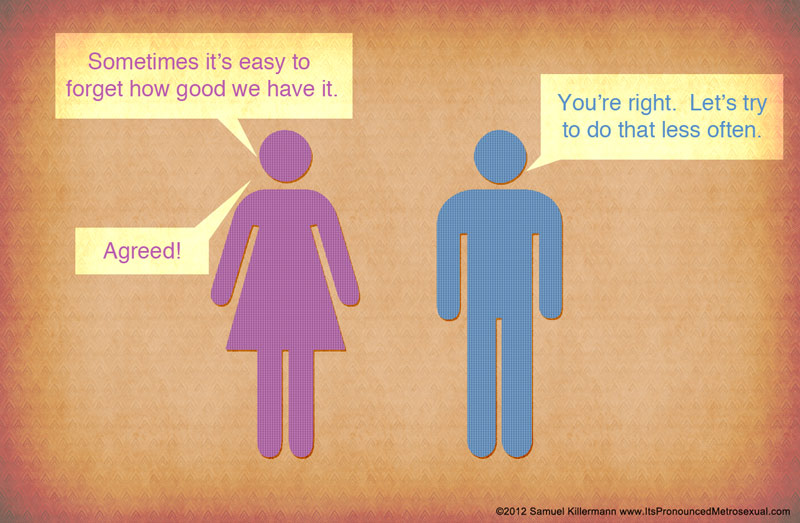
I would pose the question: If one person is trans*, then a person who isn't, is... what? And that's the point. One person gets a label, and is simply "normal." That's stigmatising, pathologising, patronising, and promotes the dominance of privilege. In the creation of one word, a very political statement regarding that dominance is made. Cue the indignation of those who consider themselves "normal" baulking at being labelled; they intuitively understand that their privilege gains them a superiority over those who are not. Subverting their privilege by labelling those who are trans* as well as those who are cis-gendered is a major development towards positive mental health outcomes for trans* people.
What, then, is the connection between defining the cis-gendered and positive mental health outcomes for trans* people? Stigma, prejudice, and internalised homophobia have long been recognised as significant contributors to a range of psychological difficulties within the gay and lesbian community. Jack Drescher MD, a psychiatrist and psychoanalyst, writes of the removal of being gay as a diagnosable mental disorder from the DSM (The Diagnostic Statistical Manual used by the psychiatric profession to diagnose their patients) that “the medical perpetuation of stigma was clear in the case of homosexuality. History has vindicated the efforts of those early gay activists who believed that removing that diagnosis from the DSM would reduce their social stigma and elevate their social status. (Drescher 2009 p. 453)
So profound was the impact of this removal that Drescher advocates that therapists take a more active stance regarding the removal of medical stigmatisation of the Transgender community, and provide therapists with an awareness of our power and influence.
The implications for therapy are significant. The use of cis-gender can equalise the field by labelling all. I am speaking to someone different to me, not someone less. Not someone ill and labelled. When I speak to a gender-questioning client, or one who is at the outset of the long journey, cis provides me with a language that attempts to equalise us, a linguistic subversion of the power of my privilege. I'm no longer speaking from "normal."
This understanding enables me to accept that symptoms do not persist because the existence of symptoms are self-referencing a diagnostic criteria – they exist because the dominant social norm is that heterosexuality (and inherently cis-gendered heterosexuality) is not only “the statistical norm; it is also the only form of sexuality regarded by society as natural and legitimate.” (Herek in Garnets & Kimmel, 2003, p. 277)
The Narrative Therapy influence I bring to my practice, by recognising the influence of society and an individual's position in that society, can completely shift a diagnosis and deeply affect an outcome. The anxiety, depression, fear and exhaustion of a trans* client is now recognisably the result of the tiring magnitude of the struggle to live in opposition to the requirements of the social norm. Shaping therapy with that in mind is radically different to other forms of therapy as it allows a person to recognise themselves, themselves in relation to society, and in relation to institutions that inform that society.
From that place, a meaningful unpacking of self/selves can occur, and a sustainable new narrative woven. It can start with a profound new word - cisgender.
Herek, G., (2003). Why Tell If You're Not Asked? Self Disclosure, Intergroup Contact, and
Heterosexuals' Attitudes Toward Lesbians and Gay Men. In Garnets, L., Kimmel, D. (2003)
Psychological Perspectives on Lesbian, Gay, and Bisexual Experiences. Columbia University Press,New York.



 RSS Feed
RSS Feed